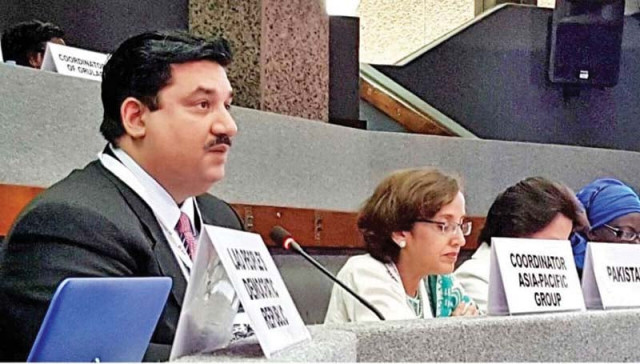Developed, developing nations: Dastgir asks rich states to reduce prosperity gap
Blames unequal participation in world economy for growing inequality

The minister said the implications of more complex technologies for the manufacturing, trade and employment patterns were quite uncertain. PHOTO: FILE
He said this while speaking to the Asia-Pacific Group at the Group of 77 and China Ministerial Meeting on the sidelines of 14th session of the United Nations Conference on Trade and Development (UNCTAD) in Nairobi, Kenya.
Poverty incidence: Economist questions report findings
While enumerating the issues that resulted in rising inequality among the countries, the minister listed unequal participation of developing countries in international economic and financial decision-making, commodity dependence, debt overhangs, lack of access to required technologies and unilateral coercive measures.
Commenting on the introduction of more complex technologies in production methods such as 3-D printing, robotics and artificial intelligence, the minister said the implications of such technologies for the manufacturing, trade and employment patterns were quite uncertain.
These could have a profoundly negative impact on the organisation of global value chains, trade flows and employment prospects in many developing countries, he added.
The minister suggested that UNCTAD should focus on reaffirming certain key principles which should underpin principles of policy space, special and differential treatment, and common but differentiated responsibilities.
He was of the view that UNCTAD should continue its work in all three areas of its mandate, which were consensus building, policy advice and technical assistance.
He also urged the participants to establish new and specialised working groups of UNCTAD to agree on and initiate work on certain emerging issues which could benefit the cause of developing countries.
The minister emphasised the importance for the G-77 and China to jointly strive for a balanced, action-oriented outcome.
Published in The Express Tribune, July 19th, 2016.
Like Business on Facebook, follow @TribuneBiz on Twitter to stay informed and join in the conversation.



















COMMENTS
Comments are moderated and generally will be posted if they are on-topic and not abusive.
For more information, please see our Comments FAQ